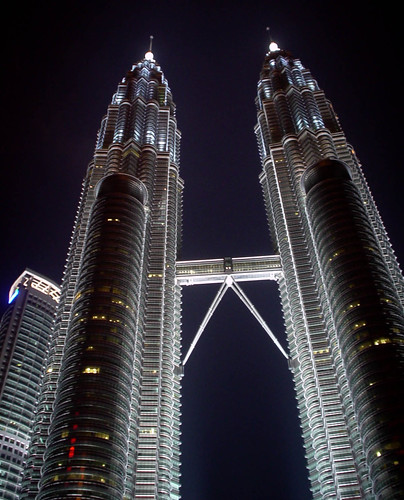Recently the world has been treated to the constant images of stranded air travelers in Europe and around the world. Closer to home, we've seen flowers being unpacked and discarded because they can't get to the European markets. All this has happened due to the impossible to pronounce Icelandic volcano whose ashes have been spewing for days. The standstill in global and more devastatingly European transport has lead to a huge bill for travelers, airlines and all the related industries. I am sure Pep Guardiola the Barcelona coach would vouch for this as his team had to travel all the way to Milan from Catalunya by bus, this clearly had an effect on his team's performances. However this is besides the point. The air travel regulatory authorities grounded all the transport due to safety concerns. On the other hand we had the airlines claiming that it could be safe to travel.
The difference between the two in my case boils down to two different approaches to scientific learning. The regulatory authorities were using computer models based on historic data to simulate what would happen if a plane was to come into contact with the ash. From a scientific perspective, it is worth mentioning that volcanic ash is in essence microscopic glass. Therefore if it would come into contact with a jet engine, it would melt immediately. As one would deduce, it would then solidify in the engine leading to pure catastrophe. Hails storms are bad enough, imagine boeing storms across continental Europe.
On the other side of the scientific argument were airlines who posited that they should undertake test flights so as to ascertain the real level of danger posed by the ash clouds. This was an old fashioned approach to science, where observation of real time data would lead to a clear conclusion. The pragmatist in me rooted for the latter approach. The IATA C.E.O. Mr. Giovanni Bisignani was a big advocate of this approach. Luckily some flights have been approved and slowly the world is travelling again.
So where does the economics and finance come in. After studying economics in depth, after sleepless nights trying to not fail advanced econometrics exams, after days in the library reading on stock covariances and correlations, I am of the opinion that it is all misplaced. I struggle to find the practical and real application of most of this issues in real life. It makes me think of the saying "If you give a man a hammer, everything to him looks like a nail". One could seriously make the argument that economists are more interested in applying their knowledge in calculus when studying the maximisation of consumer surplus, than they are in really understanding consumer surplus. A lot of the models have failed miserably in the past and even more so during the last global crisis. Modelling human behaviour is simply impossible and predicting it is even harder. However, economists have made this their life aim. From a statistical perspective, when so many models have failed, we should conclude that we should drop the models, just like statisticians drop variables that are not significant.
On the side of finance, it would take a really strong discussion for me to get the point. Warren Buffet always says that an investor should read annual reports and attend AGM's rather than study formula's with Greek alphabet terms. One example of the irrelevance is when CFA professors teach the Optimal Portfolio Theory. For a better understanding of my opposition to this you can send me an email, but the concept is way beyond lay man understanding. However, it basically makes unrealistic assumptions and even makes more unrealistic conclusions to develop a model that should eventually make money. No wonder the world is up against wall street. Maths should not be used to generate formula's so as to make money. If the Long Term Capital Management crisis of 1998 hasn't taught us anything then nothing will.
I guess where I am getting at is that too much energy is spent on the wrong things, defeating the essence of economics where we should maximise utility. In my view, the curriculisation (new word) of a branch of knowledge has lead to its deterioration. Let's make these two branches of knowledge more practical rather than more theoretical. Theory should be a precursor to knowledge rather than the knowledge itself. Knowledge and observation are the roots of the tree of theory, however nowadays finance and economics theories are like the mountains in avatar, they just float supported by nothing much. We should take the approach of the airlines and not the regulatory authorities.
Looking east? Think twice
I am sure all the readers of this blog probably know that I am currently in Malaysia. It has been great to come to the far east albeit just for a few months and see a different side of this earth. However, it has also been a great eye opener in terms of my economic thinking.
Most economic articles that chronicle or critique Africa's slow pace when it comes to economic development, often draw parallels with the East Asian tiger economies. These are Malaysia, Singapore, Thailand, Indonesia and so on. In all honesty, readers of this blog will realise that I have also joined in the foray and given the parallels.
These parallels are pertinent in that the East Asian economies started their growth from the same level as the African one's did. They are therefore good candidates for comparative analysis as one can see where we African's went wrong. We can analyse why our tourism numbers are so low given similar or sometimes even better tourism sites, we can analyse why our macro economic environments are so unstable, why our business costs are so high, why we do not have running water and many other factors. It is true that most of the tiger economies are in a far better position that we are in all of these measures.
The Eastwards mentality is becoming so entrenched in our minds, especially when the gains of western style capitalism haven't spread out to everyone. Trickle down economics has not worked, maybe our canopies are too thick and thus the rain hits the canopy, sticks there and later evaporates so as to condense elsewhere. It could be said that this eastward mentality is just another form of anti-capitalism (socialism), in just the same vain as tree hugging is. I have some friends from Zimbabwe who are such staunch supporters of their governments plans to look eastwards when it comes to development, that they can even get violent when one questions the rationale behind it. They often point out to western imperialist designs as to plausible reasons as to why we should favour the east. However as Shakespeare wrote "a rose by any other name would still smell as sweet". The east and especially China is just as imperialist as the West is, maybe just that they are honest about it. However, before I digress this was not the point of the post.
My concerns are that the admiration towards East Asian economies could be misplaced. The socio-political environment here in Malaysia and in most of the surrounding countries would simply not work in any African country. There is a very patronising and paternalistic approach from government towards their citizens. The people are like drones who shall neither speak out nor think for themselves. "Why should they, we give them all they want", seems to be the approach from the leaders. They stay mostly locked up in the government state (Putrajaya in the case of Malaysia) and looked towards like some all knowing demigods. The level of conformity is at times almost tangible. When watching TV a lot of the content is controlled, there are no satirical comedies both in print and visual media that poke fun at the governments. After all that we as Kenyans have fought for in terms of democracy and freedom of speech. So much so that a generation has grown up with people like Gado, Redykyulass and the late Wahome Mutahi who often ridiculed powerful figures in government, are we ready to give it all up, all in the name of looking east?
As my deceased intellectual mentor and role model Milton Friedman (yes, I do set myself lofty standards) would say; "the biggest downfall of the intellectuals is that they undermine the intellect of the common man". The fact is that a self sustaining capitalist and democratic society, in my view and as is attested by history should allow people to pursue their own happiness. In any means possible so long as they do not infringe on their neighbours rights. This is pure speculation, however, the Tiananmen Square crisis of the late 80's according to most historians arose due to the new found wealth of the Chinese that needed expression through increased personal freedoms. This is amongst the many historical examples that underpin the argument that freedom and wealth go hand in hand. In a previous blogpost, I start off with a quote from Adam Smith that also argues about freedom and wealth. Our aim then as a country and generally as a continent is to find a growth formula that starts off with a liberal political base. As hard as this may be, it is the only option. Looking east will mean that we give up a great deal of our basic freedoms, a situation that is untenable in both the short run and the long run.
Most economic articles that chronicle or critique Africa's slow pace when it comes to economic development, often draw parallels with the East Asian tiger economies. These are Malaysia, Singapore, Thailand, Indonesia and so on. In all honesty, readers of this blog will realise that I have also joined in the foray and given the parallels.
These parallels are pertinent in that the East Asian economies started their growth from the same level as the African one's did. They are therefore good candidates for comparative analysis as one can see where we African's went wrong. We can analyse why our tourism numbers are so low given similar or sometimes even better tourism sites, we can analyse why our macro economic environments are so unstable, why our business costs are so high, why we do not have running water and many other factors. It is true that most of the tiger economies are in a far better position that we are in all of these measures.
The Eastwards mentality is becoming so entrenched in our minds, especially when the gains of western style capitalism haven't spread out to everyone. Trickle down economics has not worked, maybe our canopies are too thick and thus the rain hits the canopy, sticks there and later evaporates so as to condense elsewhere. It could be said that this eastward mentality is just another form of anti-capitalism (socialism), in just the same vain as tree hugging is. I have some friends from Zimbabwe who are such staunch supporters of their governments plans to look eastwards when it comes to development, that they can even get violent when one questions the rationale behind it. They often point out to western imperialist designs as to plausible reasons as to why we should favour the east. However as Shakespeare wrote "a rose by any other name would still smell as sweet". The east and especially China is just as imperialist as the West is, maybe just that they are honest about it. However, before I digress this was not the point of the post.
My concerns are that the admiration towards East Asian economies could be misplaced. The socio-political environment here in Malaysia and in most of the surrounding countries would simply not work in any African country. There is a very patronising and paternalistic approach from government towards their citizens. The people are like drones who shall neither speak out nor think for themselves. "Why should they, we give them all they want", seems to be the approach from the leaders. They stay mostly locked up in the government state (Putrajaya in the case of Malaysia) and looked towards like some all knowing demigods. The level of conformity is at times almost tangible. When watching TV a lot of the content is controlled, there are no satirical comedies both in print and visual media that poke fun at the governments. After all that we as Kenyans have fought for in terms of democracy and freedom of speech. So much so that a generation has grown up with people like Gado, Redykyulass and the late Wahome Mutahi who often ridiculed powerful figures in government, are we ready to give it all up, all in the name of looking east?
As my deceased intellectual mentor and role model Milton Friedman (yes, I do set myself lofty standards) would say; "the biggest downfall of the intellectuals is that they undermine the intellect of the common man". The fact is that a self sustaining capitalist and democratic society, in my view and as is attested by history should allow people to pursue their own happiness. In any means possible so long as they do not infringe on their neighbours rights. This is pure speculation, however, the Tiananmen Square crisis of the late 80's according to most historians arose due to the new found wealth of the Chinese that needed expression through increased personal freedoms. This is amongst the many historical examples that underpin the argument that freedom and wealth go hand in hand. In a previous blogpost, I start off with a quote from Adam Smith that also argues about freedom and wealth. Our aim then as a country and generally as a continent is to find a growth formula that starts off with a liberal political base. As hard as this may be, it is the only option. Looking east will mean that we give up a great deal of our basic freedoms, a situation that is untenable in both the short run and the long run.
My F1 adventure
Search
About Me
- Samora
- Kenyan economic and financial research analyst.
Labels
agriculture
Balance of Payments
Business
Capital
Capital formation
Capitalism
CBK
Civil Service
Commodities
constitution
corruption
CPI
Currency
Debate
Different
EAC
Economic thought
Economics
Economy
education
Finance
Financial Reform
Freedom
GDP growth
Geopolitics
Hernando De Soto
ICT
incentives
inflation
Infrastructure
Innovation
Insurance
Interest Rates
Intergenerational Mobility
Investments
Kenya
media
monetary policy
money laundering
Mortgages
NSE
Pensions
Politics
property rights
quirkynomics
Real estate
Safaricom
Stimulus Programme
stocks
Taxation
Total Factor Productivity
vision 2030























